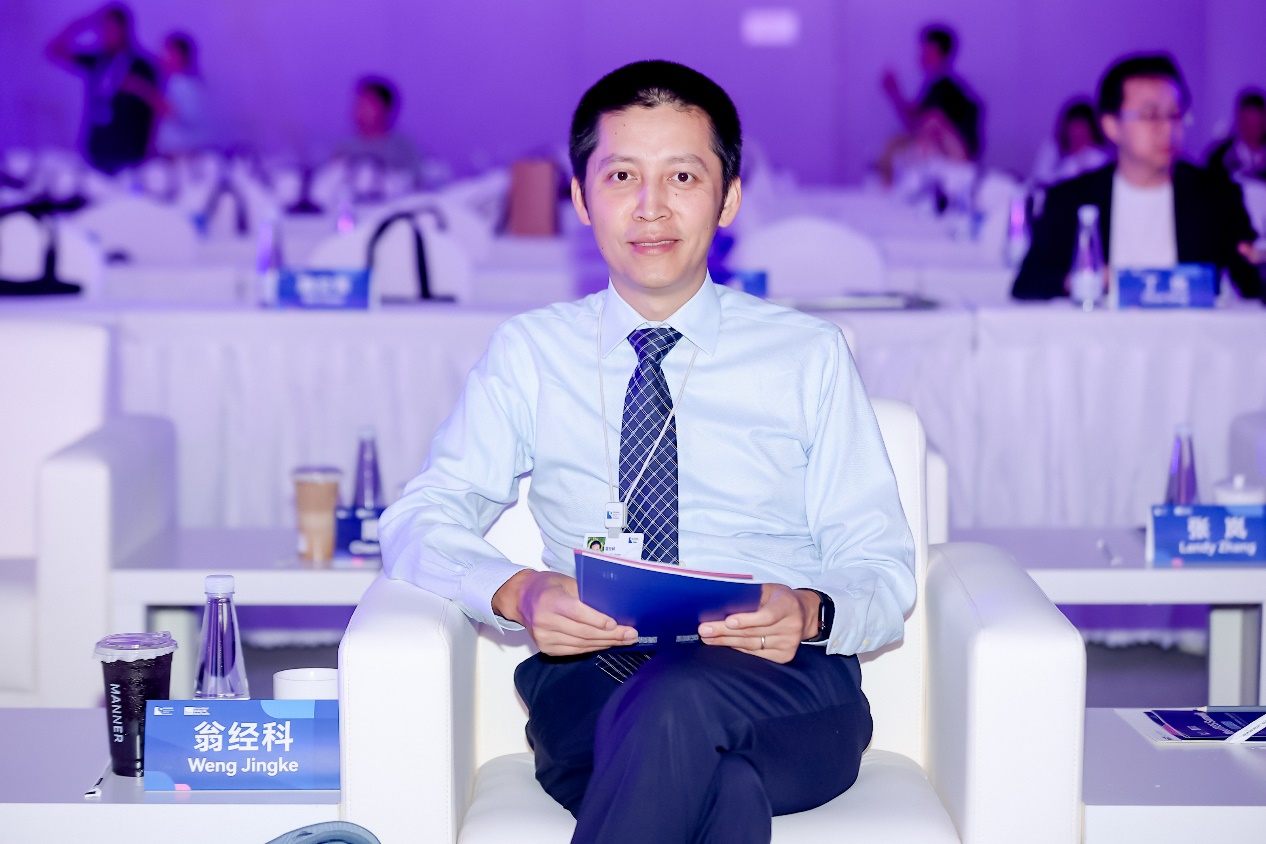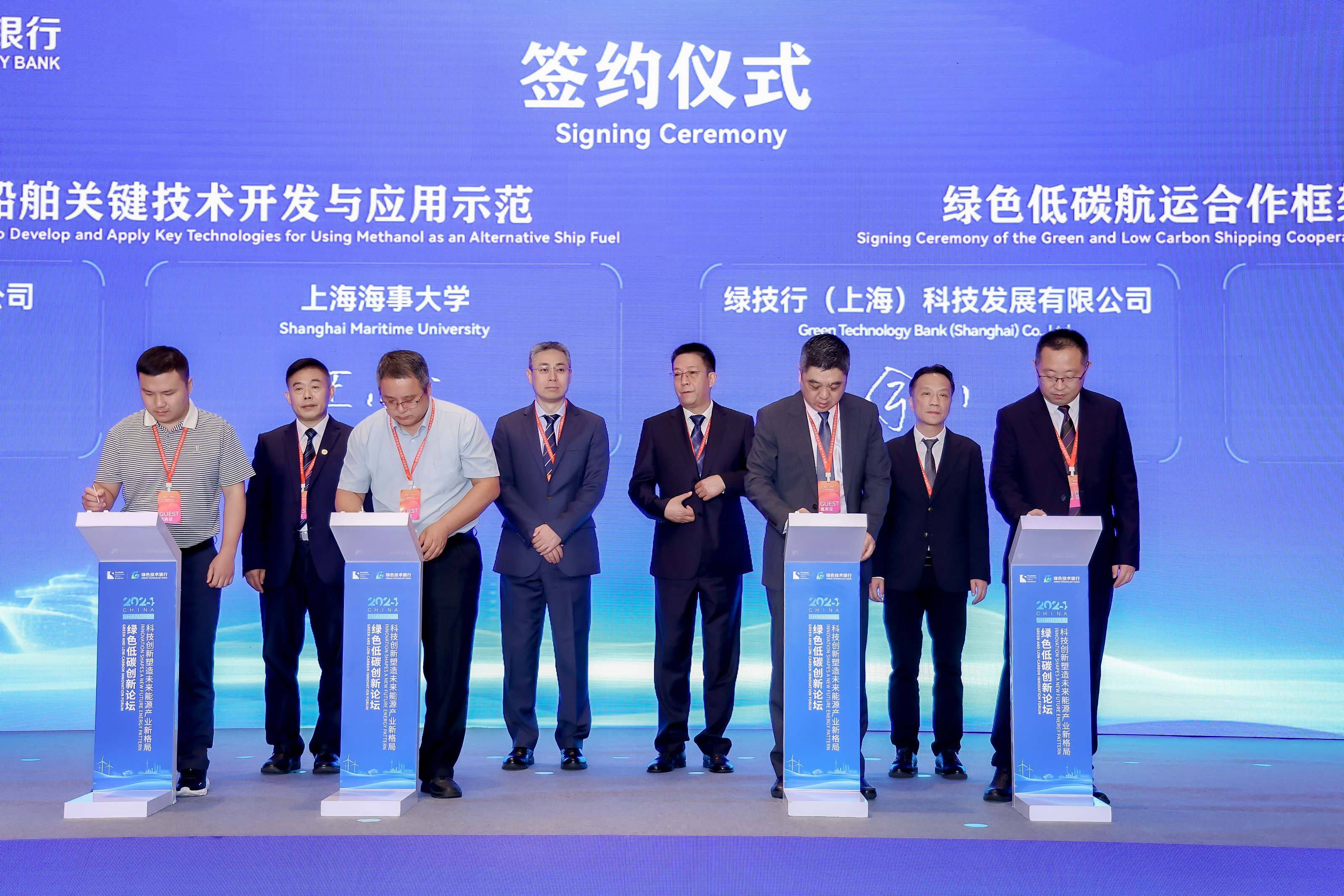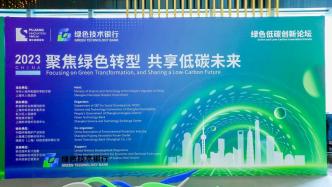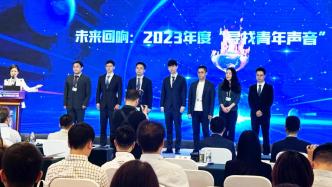

Director of the Plant and Human Interface Institute at Northeastern University, Dr. Weng Jingke.
The activities related to the 2024 Pujiang Innovation Forum, including the Meet TR35 Summit 2024 Technology Youth Forum and the Asia-Pacific release ceremony of MIT Technology Review’s "35 Innovators Under 35" (TR35), were recently held at the Zhangjiang Science Hall in Shanghai.
During the event, guest speaker Dr. Weng Jingke, director of the Plant and Human Interface Institute at Northeastern University and a past judge, participated in an interview with The Paper's tech department.
Dr. Weng emphasized the inseparable link between science and creativity. While science is often viewed as a precise array of data and facts, breakthroughs in science frequently rely on creative thinking.
He focuses on the development of natural compounds and is dedicated to exploring their applications in treating complex diseases. As a leader in this field, Dr. Weng founded the synthetic biology company DoubleRainbow Biosciences in 2017 to develop a new generation of health product ingredients and pharmaceuticals based on plant natural products.
Innovative Directions in Drug Development: The Potential of Multi-Target Natural Products
When discussing research on plant metabolic evolution, Professor Weng expressed that he is most excited to discover "natural products that can provide new therapies for complex diseases" within plants. These compounds often feature multi-target mechanisms of action, allowing them to interact with multiple proteins associated with human diseases, thereby exhibiting broader therapeutic potential.
"Traditional small-molecule drugs are typically designed to target a single site," Professor Weng explained. "However, this often proves inadequate for treating complex diseases like cancer or diabetes." With the rise of network pharmacology, researchers are beginning to explore how natural products can interact with various targets to regulate complex molecular networks, thus offering potential treatment options that are more effective than single-target drugs.
Polyphenolic compounds exemplify a typical case in this field. Dr. Weng noted that these compounds demonstrate potential therapeutic effects for diseases like cardiovascular disorders and diabetes by interacting with numerous disease-related proteins. Additionally, he pays special attention to natural products within plant metabolic networks that have significant functions, believing these compounds can reveal the interactions between plants and their biotic and abiotic environments, and the mechanisms that led to their evolution may also be applicable in drug development.
He mentioned that important natural products formed in plant secondary metabolism over millions of years of evolution demonstrate the complex interactions between plants and their environments, with their unique evolutionary mechanisms providing valuable insights for new drug development.
In the field of antiviral research, Dr. Weng particularly highlighted that the flavonoid compound isoquercetin exhibits significant antiviral activity against human influenza viruses, such as H1N1 and H3N2, making it a promising candidate for anti-flu medications.
Furthermore, he has led a randomized, double-blind, placebo-controlled clinical trial on salidroside. The study findings indicated that salidroside supplements markedly improved healthy subjects' oxygen utilization after high-intensity interval training, significantly reduced muscle damage markers like myoglobin, suggesting potential applications in relieving muscle damage and combating fatigue. Additionally, those taking salidroside showed better performance in terms of fatigue perception and emotional stability compared to the control group. These data suggest that salidroside may hold substantial promise in sports recovery and anti-fatigue applications.
Despite these exciting results, Dr. Weng cautioned that drug development from plant natural products still faces challenges, particularly in further optimizing drug structures to enhance pharmacokinetic and pharmacodynamic properties as well as large-scale production. Thus, multidisciplinary collaboration is needed to overcome these technological barriers and develop new drugs that are both effective and safe.
The Innovative Potential of Young Scientists
Innovation is the core driving force behind scientific advancement. Professor Weng believes that innovation involves "breaking the existing cognitive framework and posing entirely new questions and solutions." He stated, "Great scientists not only need to verify hypotheses but also have the courage to question existing theories," adding that "this uncertainty is a crucial source of creativity."
Dr. Weng explained that the innovative potential of young scientists can be assessed through their interdisciplinary thinking capabilities, opportunities for free exploration, and effective communication skills. He particularly emphasized that cross-disciplinary interactions can spark new ideas, noting that scientists must not only conduct rigorous experiments but also have enough "creative space" for free thinking and exploration. Ultimately, they should possess the ability to "communicate uncertainty effectively," clearly conveying the complexities and temporariness of science to the public and policymakers, thereby promoting interdisciplinary collaboration and innovation. He believes that "the potential of young scientists lies in their ability to exhibit creative thinking, show courage in questioning, and propose new solutions."
One of the biggest challenges young scientists face on the path of innovation is how to maintain the long-term need for innovation while managing academic pressure, as Professor Weng pointed out. "Many times, they must publish results quickly to obtain research funding and career advancement opportunities, but true innovation often requires extended periods of exploration and accumulation." He remarked that with the rapid advancement of science and technology, young scientists must also adopt forward-thinking and creativity amid technological iterations and multidisciplinary integration.
Professor Weng suggests that maintaining curiosity about science and daring to explore the unknown is vital. He emphasized the importance of interdisciplinary collaboration, stating, "Thinking about problems from different perspectives often sparks innovative inspiration." Moreover, he considers communication skills equally critical. Young scientists must effectively communicate their research findings, attract more people to join their vision, foster collaboration, and secure funding and other relevant resources for their research.
He also noted that great innovators like Thomas Edison, Steve Jobs, and Elon Musk not only have a strong technical background but also excel at attracting collaborators and resources through extraordinary communication skills. "Innovation requires not just scientific ability, but also relies on extensive collaboration and sustained resource support," he summarized. Young scientists should focus not only on research but also actively share their visions to ensure the sustainable development of the innovation endeavor.


